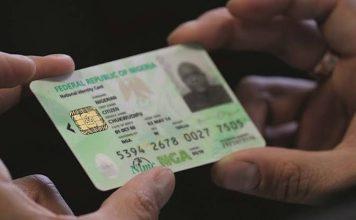The Federal Government has announced plans to provide three distinct national identity cards for roughly 104 million residents as part of an ambitious overhaul of its national identity system.
The National Identity Management Commission (NIMC), in association with important banking and regulatory organizations, was slated to launch the cards in May.
The introduction of the bank-enabled National ID card, the social intervention card, and the optional ECOWAS National Biometric Identity Card was intended to address a number of needs of the Nigerian public, according to Ayodele Babalola, Technical Adviser on Media and Communications to the NIMC Director-General.
The official launch date, however, is subject to presidential authorization.
In an effort to promote service delivery in a competitive and cost-effective manner, NIMC, the Central Bank of Nigeria (CBN), and the Nigeria Inter-bank Settlement System (NIBSS) collaborated to create the new IDs.
“Digital/virtual versions of all cards will also be available for those preferring digital formats, albeit with limited functionalities,” Babalola stated, emphasising the government’s drive towards digital inclusivity.
The project follows Shubham Chaudhuri, the Country Director of the World Bank for Nigeria, who said that the two organizations would work together to provide digital IDs to every Nigerian who is of working age by the middle of 2024.
This ambitious goal is consistent with the government’s plan to guarantee that everyone has access to digital identification.
One of the proposed IDs is a bank-enabled National ID that is intended to support middle-class and upper-class financial transactions.
The National Safety Net Card is intended to help secure access to government services and initiatives, with a specific focus on the 25 million Nigerians who are considered vulnerable.
In partnership with the Nigerian Immigration Service, the optional ECOWAS card will be provided, mainly for use as international identification inside the ECOWAS area.
Every card has special characteristics designed to improve the user experience. The bank-enabled ID has biometric authentication to enable identification verification even in places with spotty network service, and it will act as a debit and prepaid card.
In addition to being an identity card, the National Safety Net Card will be compliant with eNaira standards, have a 10-year validity, and be used as a means of accessing various government social programs.
Experts’ reactions to the announcement are not entirely consistent. Some think it may be unnecessary given the NIN and BVN, two other identity systems already in place, while others see it as a move in the right direction toward digital inclusion and financial access.
There were also raised concerns around the priority of government resources, data protection, and the technological infrastructure needed for such a large implementation.
